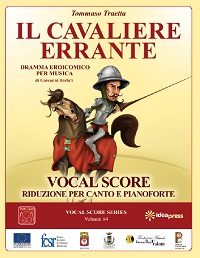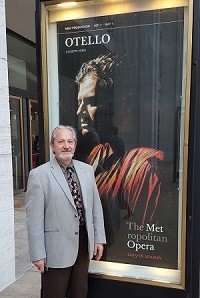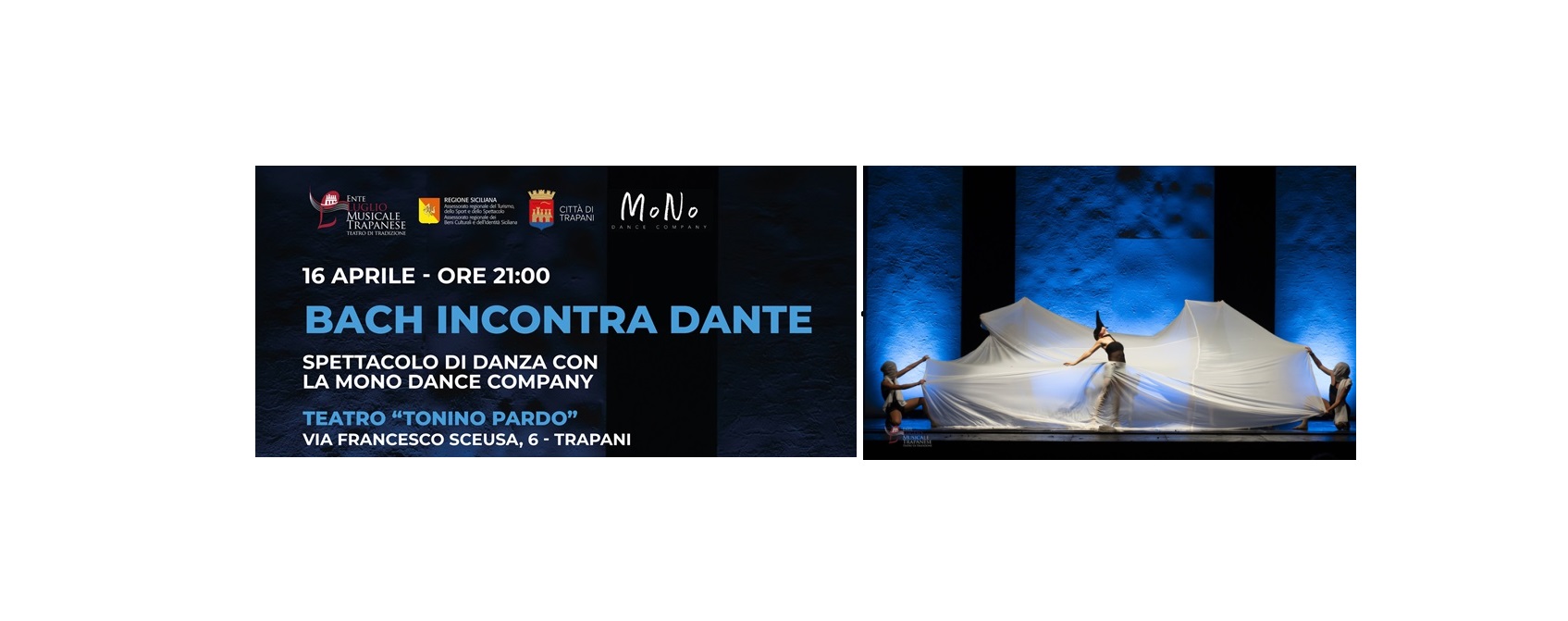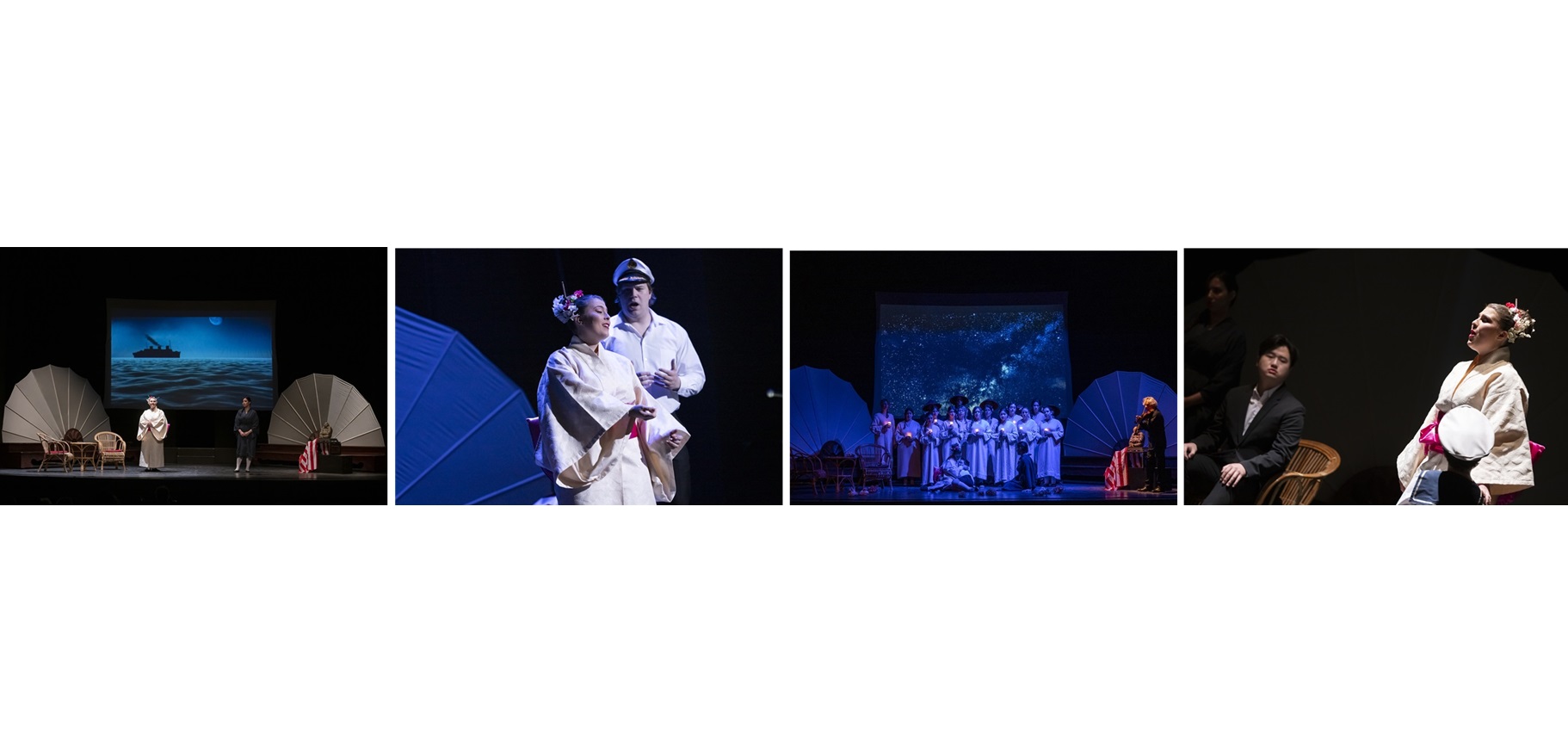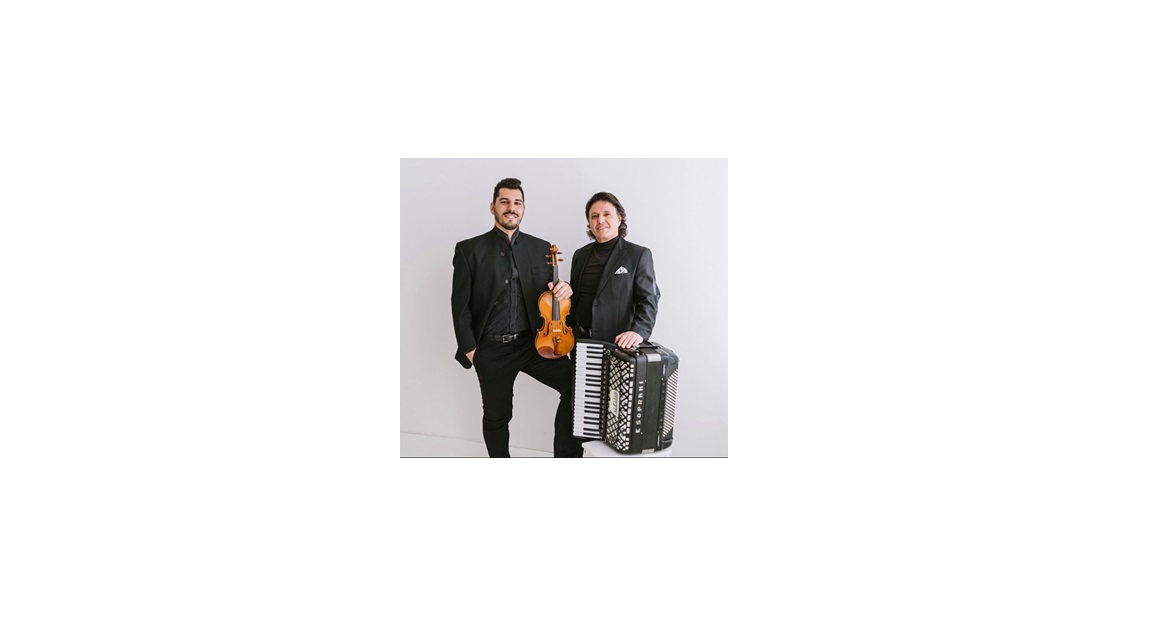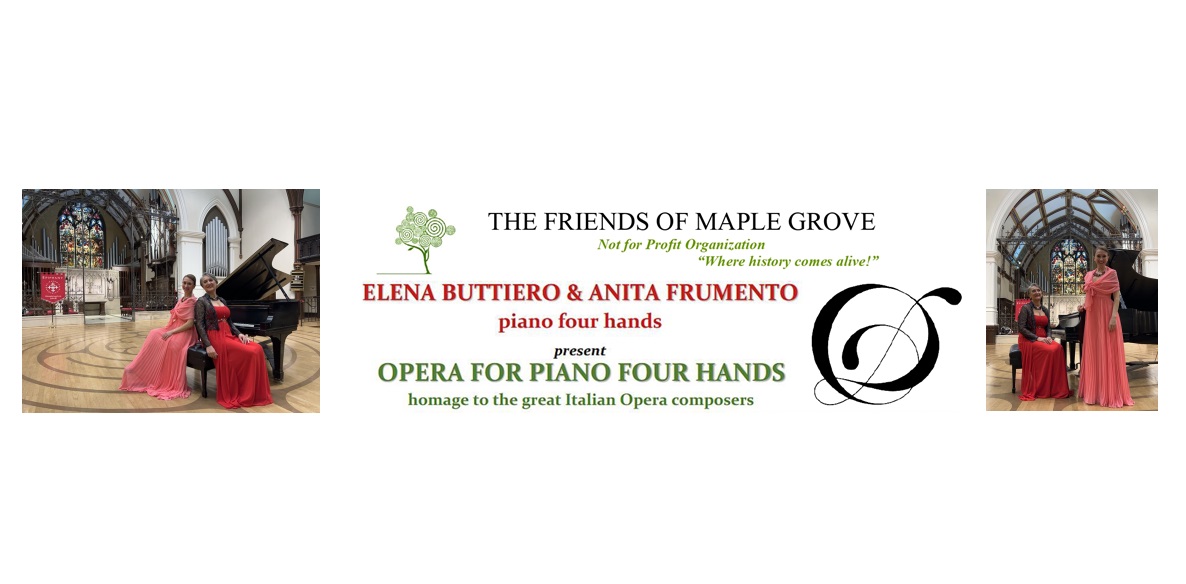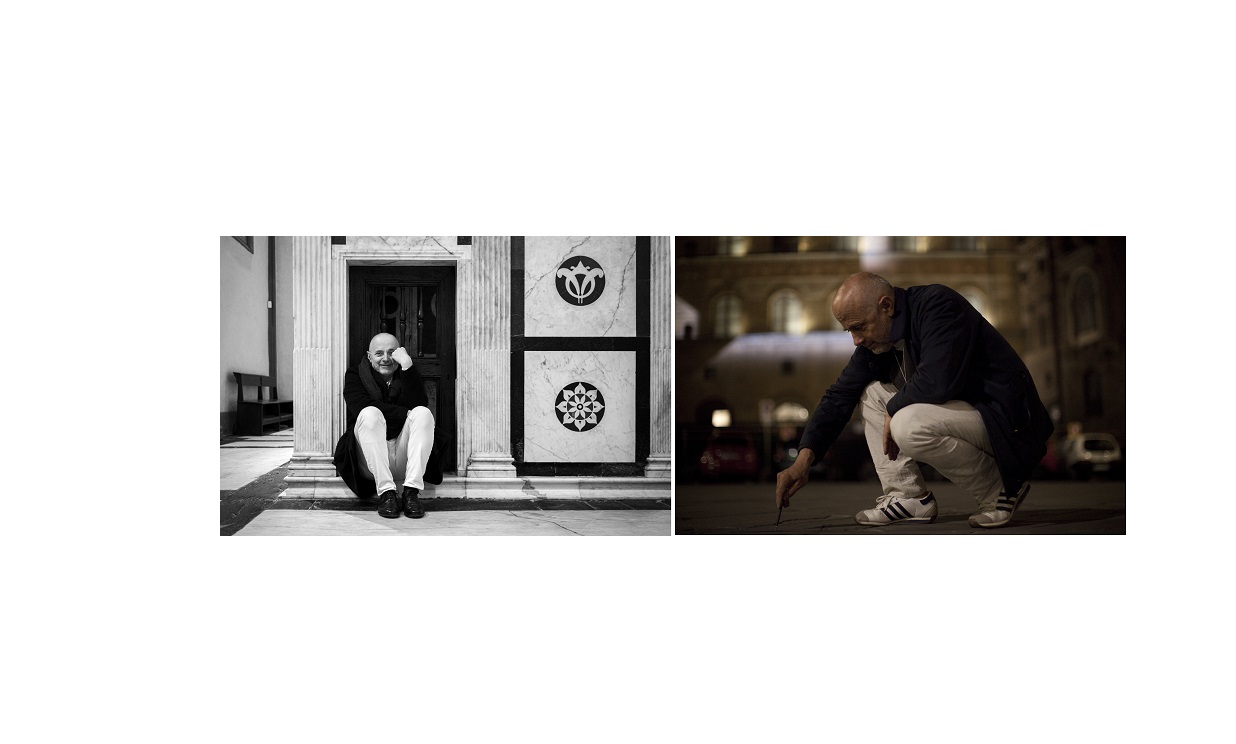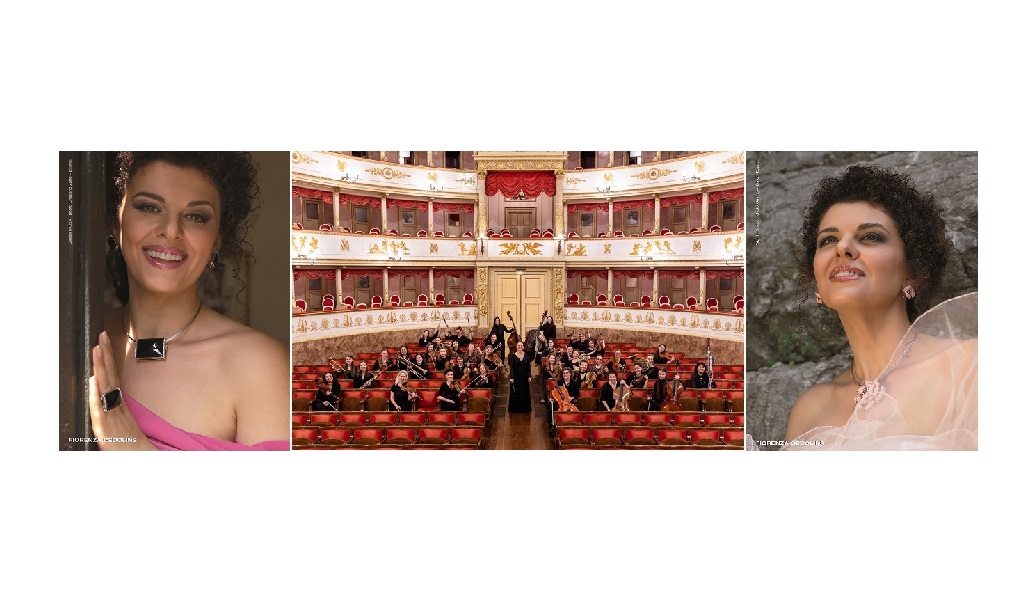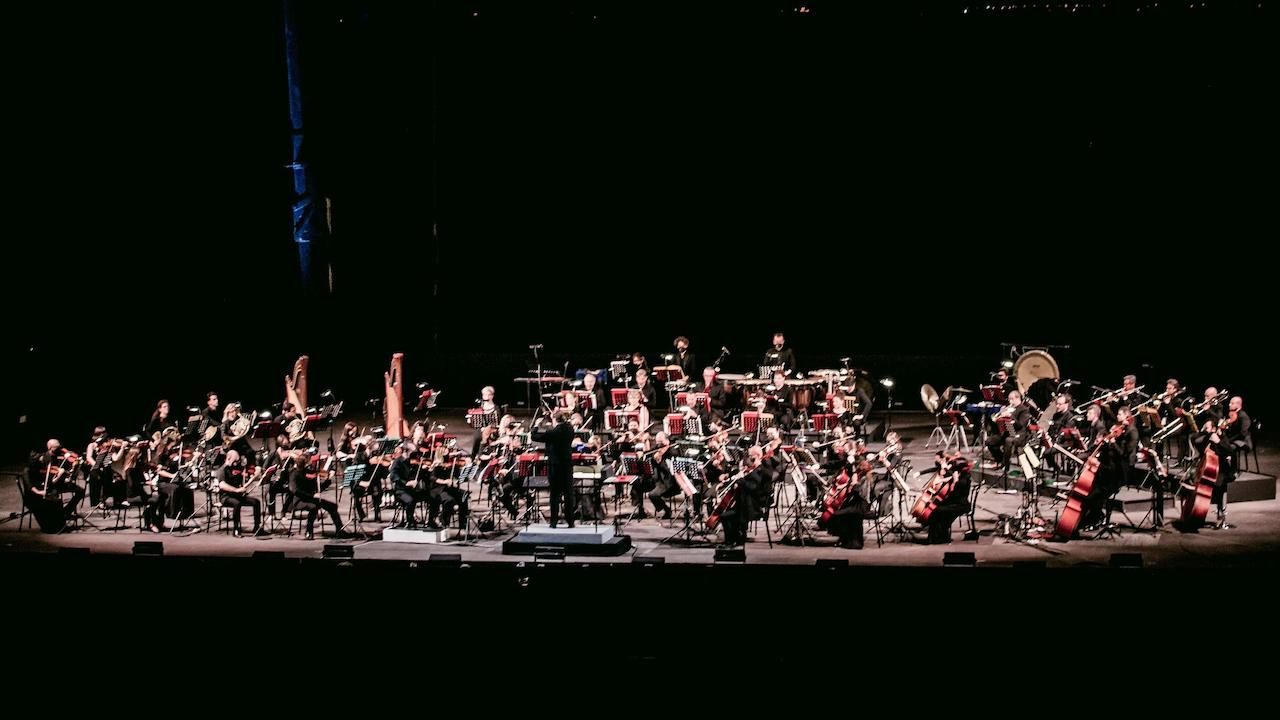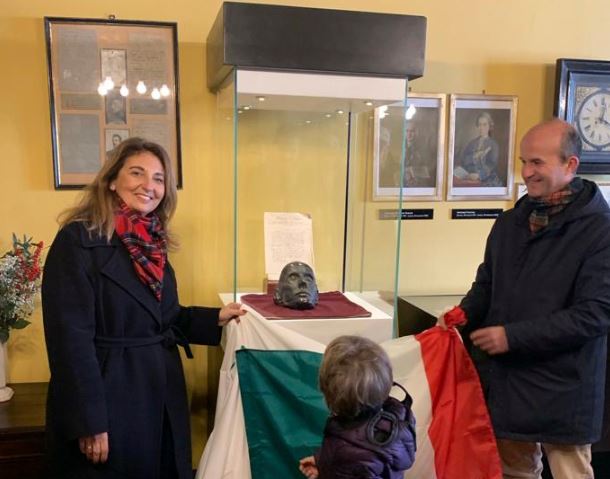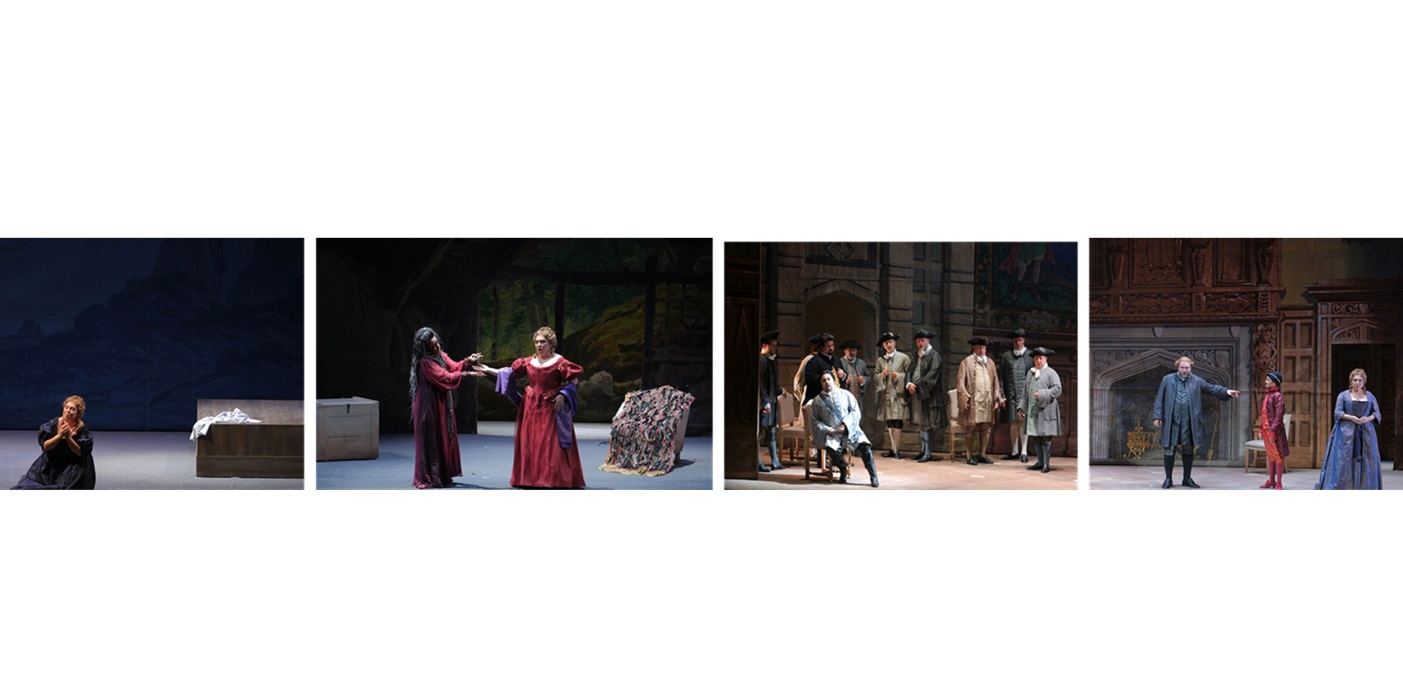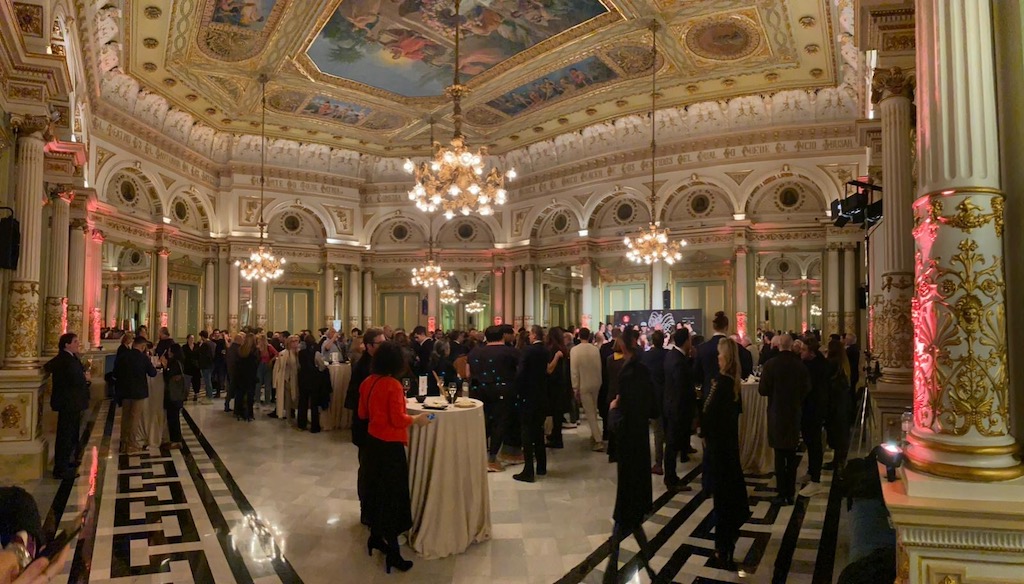|
Don Quichotteopera in five actsperformed in French (the performance will have synchronised Russian supertitles) |
Music by Jules Massenet
Libretto by Henri Cain after the play Le Chevalier de la Longue Figure by Jacques Le Lorrain and the novel The Ingenious Gentleman Don Quixote of La Mancha by Miguel de Cervantes
World premiere: 19 February 1910, Opéra de Monte Carlo
Premiere at the Mariinsky Theatre: 4 April 1919
Premiere of this production: 28 December 2012
Running time 2 hours 30 minutes
The performance has one interval
 Musical Director and Conductor: Valery Gergiev
Musical Director and Conductor: Valery Gergiev
Artistic & General Director of the Mariinsky Theatre
Valery Gergiev graduated from the Leningrad State Rimsky-Korsakov Conservatoire in symphony conducting under Professor Ilya Musin. At the age of twenty-three he won the Herbert von Karajan Conducting Competition in Berlin and, while still a student at the Conservatoire, was invited to join the Kirov Theatre (now the Mariinsky). At the age of thirty-five, Valery Gergiev was appointed Artistic Director of the Opera Company, and since 1996 he has been Artistic and General Director of the Mariinsky Theatre.
At the Mariinsky Theatre Gergiev has overseen the emergence of a plethora of world-acclaimed singers. Under his direction, the theatre’s opera and ballet repertoire has expanded significantly. Today it encompasses a broad range of works from 18th to 20th century classical masterpieces to works by contemporary composers.
Highlights include performances of every opera by Prokofiev and Shostakovich at the Mariinsky Theatre, as well as the return of Wagner’s operas Lohengrin, Parsifal, Der Fliegende Holländer and Tristan und Isolde to the St Petersburg stage. For the first time in the history of Russian theatre, Gergiev staged a production of Wagner’s tetralogy Der Ring des Nibelungen in the original German (2003), the Western European premiere of which in Baden-Baden (2004) was feted by the German media as a truly historic event in world music. in June 2005 Der Ring des Nibelungen was performed to great acclaim in Moscow, and later in South Korea and Japan. In the 2006–2007 season, Wagner’s tetralogy was performed in the USA, Great Britain and Spain. In 2009 Gergiev oversaw an international production of Berlioz’ operatic duologue Les Troyens, which resulted in a series of concert performances of this work by the Mariinsky Theatre Orchestra, Chorus and soloists in Russia, Israel and the USA.
Gergiev has established and directs such international festivals as the Gergiev Festival (the Netherlands), the Moscow Easter Festival and the Stars of the White Nights festival (St Petersburg), which Austria’s respected Festspiele Magazin listed as one of the world’s ten greatest festivals.
Thanks to the Valery Gergiev’s efforts, the Concert Hall was built in 2006, which has significantly broadened the repertoire possibilities of the company and the orchestra. This stunning theatre and concert complex is remarkable for its outstanding acoustics. The Concert Hall of the Mariinsky Theatre hosts performances of operas and philharmonic programmes, and it also produces recordings of works for the Mariinsky label. Established on the initiative of Valery Gergiev in 2009, the Mariinsky label has released twenty-one discs to date. In 2010 its recording of the opera The Nose – the label’s first project – received a MIDEM Classical Award.
The maestro devotes much attention to programmes for children and young people and he has revived the practice of offering subscriptions for this audience group as well as gratis concerts for students.
Valery Gergiev is also well-known for his active stance with regards to the protection of humanistic ideals. the maestro initiated the worldwide series of charitable concerts Beslan: Music for Life held in New York, Paris, London, Tokyo, Rome and Moscow. In August 2008 the maestro conducted a requiem concert in front of the ruined Government House of South Ossetia in Tskhinval).
Since 2007 Valery Gergiev has been Principal Conductor of the London Symphony Orchestra and he also collaborates with the Wiener Philharmoniker, the orchestra of La Scala and the New York and Rotterdam Philharmonic Orchestras. He is a member of the Council for Culture and Art of the President of the Russian Federation and heads the Organisational Committee of the XIV International Tchaikovsky Competition.
In February 2010 the Academic Council of the St Petersburg State University elected Valery Gergiev Dean of the Faculty of Arts.
For his services to music and to society, Valery Gergiev has been the recipient of numerous awards and prizes. These include the title of People’s Artist of Russia (1996), the State Prize of Russia (1994 and 1999), Germany’s Bundestverdienstkreuz, first class, “For Services”, Italy’s Grand’ufficiale dell’Ordine al merito, France’s L’Ordre des Arts et des Lettres, the Netherlands’ Knight of the Order of the Dutch Lion, Japan’s Order of the Rising Sun, the honorary title UNESCO Artist of the World and the Polar Music Prize from the Swedish Royal Academy of Music. Of the three Russian orchestras included in the list, the Mariinsky was ranked highest. One of the maestro’s most recent awards was the prize of Great Britain’s Royal Society of Music as Conductor of the Year (2009). In 2009 Great Britain’s Royal Philharmonic Society named Valery Gergiev “Conductor of the Year”. One of the maestro’s most recent awards has been the European Glashütte Original Music Festival Prize for his support of talented young musicians. In 2011 Valery Gergiev was made Honorary President of the Edinburgh International Festival. In November 2011 respected French magazine Classica named him “Artist of the Year.” In April 2012 the Academic Council of the Moscow State University passed a resolution to award Valery Gergiev the title of Honorary Doctor of the Moscow State University while in November 2012 the maestro received the title of Honorary Professor of the St Petersburg Rimsky-Korsakov Conservatoire. In May 2013 Valery Gergiev was awarded the title of Hero of Labour of the Russian Federation.
 Conductor(1): Christian Knapp,
Conductor(1): Christian Knapp,
Christian Knapp – one of the world’s most outstanding young conductors – regularly performs in concerts and festivals throughout the world. He was born in the USA and has studied for two degrees – as a pianist and as a philosopher. He initially studied conducting at the Accademia Musicale Chigiana (Siena, Italy) under Yuri Temirkanov, Myung-Whun Chung and Ilya Musin, later continuing his studies at the St Petersburg State Conservatoire with Ilya Musin and Leonid Korchmar. In 1999 he was awarded a prestigious post-graduate study grant by the Royal College of Music in London.
Christian Knapp is a highly accomplished operatic conductor. He began to work in this capacity at the experimental Broomhill Opera in London (2000 to 2003). He also helped to create its sister company in South Africa. The theatre’s innovative productions have brought it international recognition and resulted in several worldwide tours. Knapp has also conducted at the world’s leading opera houses, among them the English National Opera and the Seattle Opera; his repertoire includes such operas as Elektra, Salome, Ariadne auf Naxos, Der Fliegende Holländer, Der Ring des Nibelungen, Lohengrin, Don Giovanni, Le nozze di Figaro, Der Silbersee, Il trittico, La Bohème, Turandot, Carmen, The Turn of the Screw, A Midsummer Night’s Dream, Peter Grimes and The Rake’s Progress.
Christian Knapp collaborates with the Los Angeles Philharmonic Orchestra and the Milwaukee and Seattle Symphony Orchestra. The conductor has also appeared with the St Petersburg Philharmonic, the Royal Liverpool Philharmonic, the Baltimore Symphony Orchestra, the National Symphony Orchestra of Lithuania, the Houston, São Paulo and Indianapolis Symphony Orchestras, the Saint Paul Chamber Orchestra, the New World Symphony, the Oakland Philharmonic Orchestra and the Pacific Symphony among others.
Christian Knapp enjoys performing contemporary music and collaborates with youth ensembles throughout the world, among them the International Contemporary Ensemble (ICE) in New York.
Premieres that he has conducted that have had a wide resonance with the public and the press include the American premiere of Magnus Lindberg’s Zones at the Mostly Mozart festival at the Lincoln Center in New York as well as performances of works by 20th and 21st century composers. Christian Knapp loves unearthing new talent and often invites contemporary composers to feature in his concerts, among them Pierre Boulez, John Adams, George Crumb, Thomas Adès, Julian Anderson, Kaija Saariaho, György Ligeti, Pascal Dusapin, György Kurtág, Philippe Hurel and Karlheinz Stockhausen to name but a few.
 Conductor (2) Pavel Petrenko
Conductor (2) Pavel Petrenko
Pavel Petrenko was born in St Petersburg. He studied music at the Glinka Choral School and the St Petersburg State Rimsky-Korsakov Conservatoire where he attended the faculties of choral and symphony conducting (classes of Professor Ye.P. Kudryavtseva and A.V. Titov).From 2004-2006 he worked with the St Petersburg Chamber Opera Company, where he conducted the operas Rita, Il campanello, The Falcon and Il matrimonio segreto. Since 2007 he has been a conductor at the Zazerkalye children’s musical theatre, where he has conducted performances of the operas Die Zauberflöte and La Cenerentola and the operetta Die Fledermaus. Since 2008 he has been Artistic Director and Principal Conductor of the Vyborg Music Theatre Studio where he has conducted performances of such operas as Kashchei the Immortal, I pagliacci and Iolanta.
As a guest conductor he regularly works with the St Petersburg State Academic Symphony Orchestra.
Pavel Petrenko has worked at the Mariinsky Theatre since 2003 as a chorus master, also appearing as a conductor of concert programmes and operas including such opera premieres as Nikolai Karetnikov’s The Mystery of the Apostle Paul and Rodion Shchedrin’s Dead Souls as well as performances of Antonín Dvořák’s Rusalka, Nikolai Rimsky-Korsakov’s Christmas Eve, a concert performance of Hector Berlioz’ opera Benvenuto Cellini and Gaetano Donizetti’s L’elisir d’amore.
Director and Set Designer: Yannis Kokkos
Costume Designers: Yannis Kokkos and Paola Mariani
Dramatist: Anne Blancard
Movement Director: Marco Berriel
Lighting Designer: Michael Bauer
Video Designer: Eric Duranteau
Musical Preparation: Larisa Gergieva
Chorus Master: Pavel Teplov
French language Coach: Ksenia Klimenko
Cast
 The Beautiful Dulcinée: Anna Kiknadze
The Beautiful Dulcinée: Anna Kiknadze
Mezzo-soprano• People’s Artist of the Republic of Northern Ossetia-Alania
• Prize-winner at the Operalia competition for young opera singers, established by Plácido Domingo (Paris, 2002)
• Prize-winner at the International Moniuszko Competition (Warsaw, 2001)
• Diploma-recipient at the IV Rimsky-Korsakov Young Opera Singers’ Competition (prize “For artistry and musicality”, St Petersburg, 2000)
• Diploma-recipient at the Republican Competition of Young Performers (Tbilisi, 1999)Anna Kiknadze was born in Tbilisi. She graduated from the Tbilisi State Saradzhishvili Conservatoire in 1999. In 1997 as a fourth-year student she was invited to join the Tbilisi Paliashvili Opera House, where her repertoire included Lyubasha (The Tsar’s Bride) and Carmen (Carmen). In 2001, she represented Georgia at the BBC Cardiff Singer of the World Competition and was a finalist. Twenty-five singers chosen from auditions throughout the world take part in the competition. Each country may forward just one singer, and just five performers take part in the final.
Soloist with the Mariinsky Academy of Young Singers from 2000.
Joined the Mariinsky Opera Company in 2009.Roles performed at the Mariinsky Theatre include:
Laura (The Stone Guest in concert)
Fekla (The Marriage)
Olga (Eugene Onegin)
Polina, Countess (The Queen of Spades)
Laura (Iolanta)
Ganna (May Night)
Solokha (Christmas Eve)
Dunyasha (The Tsar’s Bride)
Mother (Mavra)
Linetta (The Love for Three Oranges)
Clara (Betrothal in a Monastery)
Korobochka (Dead Souls)
Antonio (Cleopatra)
Marchesa Melibea (Il viaggio a Reims)
Maddalena (Rigoletto)
Amneris (Aida)
Meg Page, Mrs Quickly (Falstaff)
Lola (Cavalleria rusticana)
Suzuki (Madama Butterfly)
Carmen (Carmen)
Dalila (Samson et Dalila)
Concepción (L’Heure espagnole)
The Beautiful Dulcinée (Don Quichotte)
Cherubino (Le nozze di Figaro)
Dorabella (Così fan tutte)
Third Lady (Die Zauberflöte)
Grimgerde (Die Walküre)
Flosshilde, First Norn (Götterdämmerung)
Klingsor’s Flower Maiden (Parsifal)
Spirit (Dido and Aeneas)
Dryad (Ariadne auf Naxos)
Karolka (Jenůfa)
Voice of Antonia’s mother (Les Contes d’Hoffmann)
Ježibaba (Antonín Dvořák’s Rusalka).Has toured with the Mariinsky Opera Company to the USA, the UK, Austria, Finland, Germany, Japan, Korea, Denmark, France and Brazil as well as performing as a guest soloist at various theatres in Sweden, Austria, Germany and the Netherlands.Don Quichotte:
 Don Quichotte: Askar Abdrazakov
Don Quichotte: Askar Abdrazakov
Bass
• Prize-winner at the Unisa Transnet International Vocalists’ Competition in Pretoria (1994, Grand Prix)
• Prize-winner at the International Fyodor Chaliapin Vocalists’ Competition in Kazan (1994, 1st prize)
• Prize-winner at the International Maria Callas Competition in Athens (1995, Grand Prix)
• Prize-winner at the International Sergei Rachmaninoff Competition (1998, 1st prize)Askar Abdrazakov was born in Ufa, a city rich in cultural traditions, where Fyodor Chaliapin and Rudolf Nureyev began their careers and where Vladimir Spivakov was born. After graduating from the Ufa State Conservatoire (class of Professor M.G. Murtazina) he undertook a postgraduate study at the Moscow State Conservatoire (class of the legendary Irina Arkhipova). While still a student, the singer started winning international competitions at which he took first prizes and grand prix exclusively.In 1994 he was invited to perform Puccini’s Messa di Gloria at the Great Hall of the Moscow Conservatoire under the baton of Vladimir Fedoseyev, and he also performed in Rimsky-Korsakov’s opera The Legend of the Invisible City of Kitezh and the Maiden Fevronia at the Bregenz Festival (Austria). The same year, he made his debut at the Bolshoi Theatre in Moscow, appearing as Don Basilio (Il barbiere di Siviglia) and Konchak (Prince Igor).He went on to sign contracts with the world’s greatest opera houses, among them the Bolshoi Theatre, the Mariinsky Theatre, the Metropolitan Opera, the Washington Opera, the Teatro alla Scala, Barcelona’s Teatre del Liceu, NHK Hall in Tokyo, the Teatro Colón in Buenos Aires, Madrid’s Teatro Real, Paris’ Théâtre du Châtelet, the Bayerische Staatsoper, Berlin’s Deutsche Oper, the Staatsoper Berlin, the Hamburg Staatsoper, the Megaron Hall in Athens, Parma’s Teatro Regio, Florence’s Teatro Comunale and the Teatro Regio and Teatro Massimo in Turin.
Askar Abdrazakov has worked with such conductors as Pierre Boulez, Mstislav Rostropovich, Claudio Abbado, Valery Gergiev, Michel Plasson, Plácido Domingo, Marcello Viotti, Bruno Bartoletti, Lorin Maazel, Bertrand de Billy, Oleg Caetani, Maurizio Arena, Daniele Gatti, Alexander Anisimov, Vladimir Fedoseyev, Jean- Claude Casadesus, Daniel Oren, Mark Ermler, Jesús López-Cobos, Nello Santi, Mark Elder and Ralf Weikert to name but a few.
The singer has a vast repertoire including the roles of Boris (Boris Godunov), Attila (Attila), Filippo II (Don Carlo), Zaccaria (Nabucco), Banco (Macbeth), Fiesco (Simon Boccanegra), Don Quichotte (Don Quichotte), Méphistophélès (Faust), Mefistofele (Mefistofele), Kochubei (Mazepa) and Don Giovanni and Leporello (Don Giovanni).
 Sancho Pança: Andrei Serov
Sancho Pança: Andrei Serov
Bass
The Montblanc New Voices award Winner (2012)
Andrey Serov was born in Klin, Moscow Region. In 2001 he graduated from the Institute of Contemporary Art (Moscow) and became a soloist with the Moscow Regional Philharmonic.
From 2005-2009 he was a soloist with the Helikon Opera (Moscow).
Soloist with the Mariinsky Academy of Young Singers since 2009.
Repertoire at the Mariinsky Theatre includes:
Grandfather Frost (The Snow Maiden)
Head of the Village (May Night)
Cook (The Love for Three Oranges)
Ivan Nikiforovich (The Opera of How Ivan Ivanovich Quarrelled with Ivan Nikiforovich)
Ivan Fyodorovich Shponka (Ivan Fyodorovich Shponka and his Aunt)
the General (The Carriage)
Mizhuev (Dead Souls)
Conte Rodolfo (La somnambula)
Figaro (Le nozze di Figaro)
Dr. Dulcamara (L’elisir d’amore)
Sarastro (Die Zauberflöte)
Sancho Pança (Don Quichotte)
Truffaldino (Ariadne auf Naxos)
the Water-Sprite (Antonín Dvořák’s Rusalka)
Bottom (A Midsummer Night’s Dream)
Lindorf, Dr Miracle, Coppélius, Dapertutto (Les Contes d’Hoffmann)
and Golaud (Pelléas et Mélisande).
In 2010 Andrey Serov was presented with the audience award from the St Petersburg Theatregoer society for the role of Sancho Pança (Massenet’s Don Quichotte). Under the baton of Valery Gergiev he has taken part in the Stravinsky Festival at the New York Philharmonic and performed Musorgsky’s cycle Songs and Dances of Death at the Konzerthaus in Vienna. He has appeared in concerts together with Larisa Gergieva, among them an appearance at Wigmore Hall in March 2012.
He has toured to France, Denmark, Israel, Germany, Hungary, Italy, South Korea and Estonia.
 Pedro: Eleonora Vindau
Pedro: Eleonora Vindau
Soprano
• Diploma-recipient at the IV All-Russian Nadezhda Obukhova Young Opera Singers’ Competition (Lipetsk, 2008)
• Diploma-recipient at the VIII International Rimsky-Korsakov Young Opera Singers’ Competition (St Petersburg, 2008)
Born in Kiev. Graduated from the National Tchaikovsky Academy of Music of Ukraine in 2009 (class of Professor Valery Buimister). At the Studio Theatre of the Academy of Music she performed the roles of Susanna (Le nozze di Figaro), Lauretta (Gianni Schicchi), Oxana (A Zaporozhian Cossack beyond the Danube) and Lucy (The Telephone).
Soloist with the Mariinsky Academy of Young Singers since 2007.
Her repertoire at the Mariinsky Theatre includes:
Xenia (Boris Godunov)
Brigitta (Iolanta)
Dunyasha (The Station Master)
Zerlina (Don Giovanni)
Susanna (Le nozze di Figaro)
Despina (Così fan tutte)
Papagena (Die Zauberflöte)
Pedro (Don Quichotte)
Echo (Ariadne auf Naxos)
the soprano role (Händel’s Messiah)
Her repertoire also includes:
Tatiana (Eugene Onegin), Louisa (Betrothal in a Monastery), Oxana (A Zaporozhian Cossack beyond the Danube), Lauretta (Gianni Schicchi), Barbarina (Le nozze di Figaro), Amore, Euridice (Orfeo ed Euridice), Lucy (The Telephone), Helena (A Midsummer Night’s Dream), Marguerite (Faust), Natasha Rostova (War and Peace) and the soprano role in Pergolesi’s Stabat Mater.
The singer’s concert repertoire includes arias from operas by Tchaikovsky, Rimsky-Korsakov, Mozart, Bellini, Donizetti, Handel, Gluck, Rossini and Gounod and songs and romances by Glinka, Rimsky-Korsakov, Schubert, Schumann, Poulenc, Debussy, Musorgsky and Strauss.
She has taken part in master classes given by Vladimir Atlantov, Elena Obraztsova, Mati Palm, Grayr Khanedanian and Larisa Gergieva at the International Summer Academy in Mikkeli (Finland, 2007) and by Kiri Te Kanawa and Frederica von Stade at the Georg Solti Summer Academy (Italy, 2008).
She has participated in a music festival in Japan, performing roles from works by Wolfgang Amadeus Mozart (conducted by Leo Hussain).
She has been accompanied by Larisa Gergieva on tour to London, Stirling, Cambridge, Rome and Venice. In 2009 she performed in concert programmes of the Moscow Easter Festival.
In March 2010 she performed the role of Brigitta in the opera Iolanta at the Théâtre du Capitole under the baton of Tugan Sokhiev (Toulouse, France).
In the summer of 2010 she took part in the Young Singers international project at the Salzburg Festival, taking part in master classes given by Sir Thomas Allen, Christa Ludwig, Jürgen Flimm, Marjana Lipovšek and Maestro Riccardo Muti.
She was the first performer of the role of Dunyasha in the world premiere of Alexander Smelkov’s opera The Station Master, staged at the Concert Hall of the Mariinsky Theatre in 2011.
Has toured with the Mariinsky Opera Company to Baden-Baden (Germany), Finland (Turku) and Spain (Gran Teatre del Liceu in Barcelona).
Garcias: Yulia Matochkina
Rodriguez: Andrei Ilyushnikov
Juan: Dmitry Koleushko






SYNOPSIS OF THE OPERA
Act I
On a square in a small town in Spain, the people are merrymaking and dancing. Visitors at the tavern praise the Beautiful Dulcinée while four admirers − Pedro, Garcias, Rodriguez and Juan − gather beneath her balcony. However, the Beautiful Dulcinée, despite the general adoration, feels some strange dissatisfaction − she longs to meet a true knight.
Laughter and merry voices can be heard − it is the crowd greeting Don Quichotte and Sancho Pança. Juan makes fun of the knight’s rueful countenance and his veneration for the Beautiful Dulcinée. Rodriguez is enchanted by the beauty of soul and the bravery with which the former protects widows and orphans. Don Quichotte is unruffled. The knight orders his armour-bearer Sancho Pança to give money to the poor and the crippled. The crowd disperses. Sancho heads for the tavern. Night falls.
The admiring knight sings Dulcinée a serenade. Jealous, Juan interrupts him and challenges him to a duel. Dulcinée appears and prevents the fight taking place. Don Quichotte declares to Dulcinée that henceforth he will serve her. She, laughing, asks him for proof of his devotion and to reclaim a necklace stolen from her by bandits. Don Quichotte sets out without delay.
Act II
The morning dawn sees Don Quichotte and Sancho on their way. In the morning mist some windmills can barely be made out. Don Quichotte selects rhythms for a song in honour of Dulcinée. Sancho is not pleased with this extravagant campaign, certain that the beautiful woman was laughing at them. Filled with hatred of his master, Sancho bursts into a furious tirade directed against every woman on Earth.
The mist dispels and Don Quichotte takes the windmills to be giants trying to stop him. To Sancho’s terror, he starts battling against them.
Act III
Don Quichotte pursues the bandits. When he stops to rest – standing up in his armour as befitting a knight – the bandits appear. Don Quichotte makes Sancho stand back and makes war with the bandits but is defeated and tied up. The bandits laugh at him and are ready to hang him. But Don Quichotte’s “deathbed” prayer and his eloquent story of the mission of a travelling knight are so touching that the stony hearts of the inveterate bandits soften, and their leader not only frees Don Quichotte but also returns Dulcinées necklace. Don Quichotte blesses the bandits and sets off for home, victorious.
Act IV
A party is underway in Dulcinée’s garden. Yet the beauty has become bored with her admirers. She thinks of how fleeting love is. But then her mood changes and she sings a song praising the joys of short hours of true passion.
When the guests move off to feast in the dining room, Sancho Pança appears and pompously announces Don Quichotte’s arrival. Don Quichotte, sensing that his adventures are approaching an end, promises Sancho an island or a castle as a reward for his loyal service. In the presence of the guests as they come back to the garden, he returns the necklace to Dulcinée and asks her hand in marriage. Dulcinée is delighted at the necklace but turns down the offer of his hand and heart. Sending her guests away, she consoles the despairing Don Quichotte by telling him she feels dedication and tenderness for him but is unworthy of his love.
The guests return once more and laugh at the poor knight. But then Sancho comes to the defence of his master and leads him away, crushed by Dulcinée’s rejection.
Act V
On a mountain path Don Quichotte is resting, leaning against a tree trunk. Sancho tries to console him as best he can. Feeling the approach of death, the old knight remembers his promise to reward Sancho with an island − an island of dreams.
Thinking of Dulcinée, Don Quichotte dies, reconciled and at peace. Sancho Pança weeps inconsolably.







